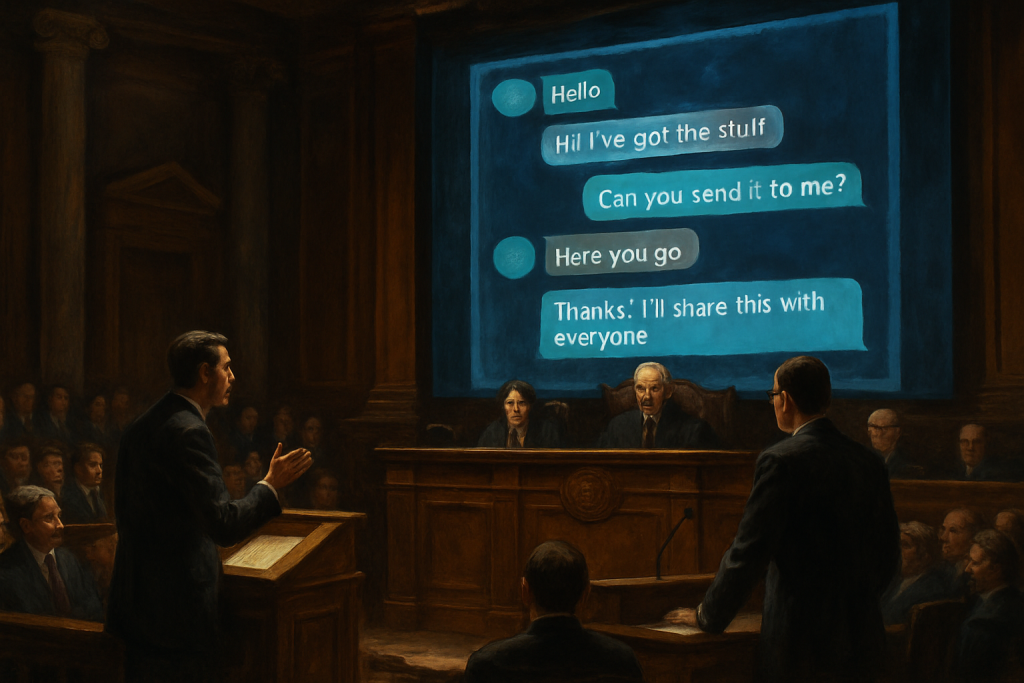Okay, folks, buckle up. We’ve officially entered the “dystopian future we were warned about” phase, and today’s exhibit A is a doozy. OpenAI, the wizards behind the curtain of so many shiny AI toys, are locked in a digital showdown with The New York Times, and the battleground is paved with… your private chats. Yes, your chats.
The headline? A court order, dated November 15, 2025, has granted The Gray Lady access to a staggering 20 million OpenAI user chat logs. Twenty. Million. That’s more conversations than you can shake a neural network at. And OpenAI? They are not happy. We’re talking public disapproval, the kind usually reserved for rogue AIs that start writing unsolicited poetry about world domination.
But before we grab our pitchforks and start chanting “Privacy! Privacy!”, let’s unpack this digital drama. This isn’t just about OpenAI being a sore loser. This is about the very fabric of trust in the AI era, and whether we, the users, are just data points in a giant algorithm’s playground.
So, what’s the backstory? While the specifics are still shrouded in legal fog, the underlying tension is crystal clear: OpenAI and The New York Times are likely embroiled in some sort of copyright or intellectual property dispute. Think of it as Godzilla versus Kong, but instead of smashing skyscrapers, they’re battling over datasets and algorithms. The Times, like many news organizations, has been wrestling with how to protect its content in a world where AI can seemingly ingest and regurgitate information at will. They’re probably arguing that OpenAI trained its models on their copyrighted material without proper compensation or permission, a claim that resonates with many creatives worried about AI’s impact on their livelihoods.
Now, here’s where it gets really interesting, and frankly, a little terrifying. To bolster their case, The Times apparently argued they needed access to these chat logs. The logic, presumably, is that these logs would demonstrate how users are interacting with AI models trained on NYT content, perhaps revealing instances of verbatim copying or paraphrasing that infringe on their copyright. It’s a legal Hail Mary, a gamble that could either cripple OpenAI or set a precedent that chills free expression and innovation. It’s a bit like demanding to read everyone’s diary to prove someone plagiarized your tweet. A bit extreme, no?
The implications are vast and far-reaching. First and foremost, there’s the privacy angle. 20 million chat logs? That’s a treasure trove of personal information: hopes, fears, anxieties, late-night confessions, maybe even some ill-advised attempts at writing fan fiction. (We’ve all been there. No judgement.) Imagine that data falling into the wrong hands, or even just being analyzed for trends and patterns. Suddenly, your harmless conversations with your AI therapist about your crippling addiction to avocado toast become fodder for targeted advertising or, worse, something far more sinister. We’re talking Black Mirror level creepiness here.
This also throws a massive wrench into the already complex debate around AI ethics. Are we comfortable sacrificing user privacy at the altar of copyright protection? Where do we draw the line between legitimate data analysis and invasive surveillance? The EU’s already hyperventilating about GDPR violations, and you can bet other regulatory bodies are watching this case like hawks.
Who’s affected? Well, besides the obvious (OpenAI and The New York Times), pretty much everyone who uses AI chatbots. Think about it: if your conversations with an AI are potentially subject to legal discovery, are you going to be as open and honest? Will you censor yourself, fearing that your words might be used against you in some future copyright lawsuit? It’s a chilling effect that could stifle innovation and erode trust in AI altogether.
And let’s not forget the financial implications. If OpenAI loses this battle, it could face a massive payout to The New York Times, not to mention a PR nightmare of epic proportions. Other AI companies will be quaking in their boots, knowing that their own data practices are now under the microscope. The stock market could react violently, sending shockwaves through the entire tech industry. This isn’t just a legal squabble; it’s a potential economic earthquake.
But perhaps the most profound question this case raises is this: who owns our digital selves? In an age where our thoughts, feelings, and desires are increasingly mediated by AI, do we still have control over our own data? Or are we simply cogs in a machine, our privacy sacrificed for the sake of technological progress and corporate profits? This OpenAI versus NYT showdown isn’t just about copyright; it’s about the very soul of the digital age.
So, what’s next? We’ll be watching this case closely, keeping you updated on every twist and turn. In the meantime, maybe think twice before you tell your AI chatbot all your deepest, darkest secrets. You never know who might be listening.
Discover more from Just Buzz
Subscribe to get the latest posts sent to your email.


